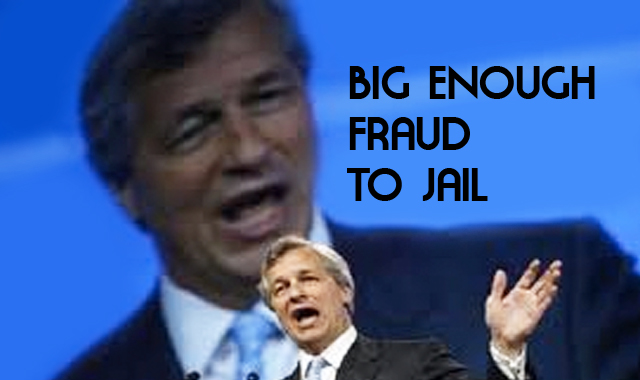JP Morgan Finally on Regulatory Hot Seat for Widespread Control Failures and Alleged Lying by Blythe Masters Under Oath
It’s been far too long in coming, but Jamie Dimon may finally be getting his comeuppance. A New York Times report reveals the Morgan bank is in the crosshairs of multiple regulators for poor controls and dishonest dealings with the authorities:
Government investigators have found that JPMorgan Chase devised “manipulative schemes” that transformed “money-losing power plants into powerful profit centers,” and that one of its most senior executives gave “false and misleading statements” under oath…
In a meeting last month at the bank’s Park Avenue headquarters, the comptroller’s office delivered an unusually stark message to Jamie Dimon, the chief executive and chairman: the nation’s biggest bank was quickly losing credibility in Washington. The bank’s top lawyers, including Stephen M. Cutler, the general counsel, have also cautioned executives about the bank’s regulatory problems, employees say.
The Times reports that the bank faces actions across eight regulators including: FERC, for a series of “schemes” to dupe state authorities to overpay for power and includes allegations that JP Morgan executive Blythe Masters lied under oath; using false documents when collecting credit card debt; and a failure to report suspicious trading activities by Bernie Madoff.
Rest here…
~


There is an old adage “Liars figure but figures don’t lie”
JP Morgan Chase, a case study in Liars that figure.
This is a story that rivals the criminal activities of Enron’s Executives (“the smartest men in the room”) with one major difference, Enron’s victims were primarily investors, whereas Chases victims are vulnerable and financially distressed Chase customers. This includes US servicemen and their families and thousands of others facing foreclosure, with chase “gaming” the Obama MHAP program to steal from, and foreclose on, seniors seeking help from the federal program designed to provide financial relief.
Chase says it will pay more than $2 million to about 4,000 service member mortgage holders that were overcharged in interest while they were on active duty. The bank’s decision is linked to a five-year legal battle with Marine Capt. Jonathan Rowles, an F/A-18D weapons system officer who sued after the institution continued to charge him 9 or 10 percent interest on his mortgage — a violation of the Service members Civil Relief Act — and threatened to take his home. .
This is just the tip of the iceberg.
This is a story that will not be welcome or embraced by politicians influenced (if not corrupted) by big banking lobbyists.
This is a story that can change the way elected officials will level the playing field for the most vulnerable of our citizens victimized by the US banking system.
This is a story that needs to be pursued by the institutions that are chartered to challenge the criminal activities aimed at our most vulnerable and least protected citizens.
This is a story that should culminate in the prosecution of responsible Chase management under the “RICO Act’.
The Racketeer Influenced and Corrupt Organizations Act (commonly referred to as RICO Act or RICO) is a United States federal law that provides for extended criminal penalties and a civil cause of action for acts performed as part of an ongoing criminal organization.
Under RICO, a person who is a member of an enterprise that has committed any two of 35 crimes—27 federal crimes and 8 state crimes—within a 10-year period can be charged with racketeering. Those found guilty of racketeering can be fined up to $25,000 and sentenced to 20 years in prison per racketeering count treble damages.Despite its harsh provisions, a RICO-related charge is considered easy to prove in court, as it focuses on patterns of behavior as opposed to criminal acts.
Although its primary intent was to deal with organized crime, Blakey said that Congress never intended it to merely apply to the Mob. He once told Time, “We don’t want one set of rules for people whose collars are blue or whose names end in vowels, and another set for those whose collars are white and have Ivy League diplomas.”
On March 29, 1989, financier Michael Milken was indicted on 98 counts of racketeering and fraud relating to an investigation into insider trading and other offenses. Milken was accused of using a wide-ranging network of contacts to manipulate stock and bond prices. It was one of the first occasions that a RICO indictment was brought against an individual with no ties to organized crime. Milken pled guilty to six lesser offenses rather than face spending the rest of his life in prison.On September 7, 1988, Milken’s employer, Drexel Burnham Lambert, was also threatened with a RICO indictment under the legal doctrine that corporations are responsible for their employees’ crimes.
“Experience hath shown, that even under
the best forms of government those
entrusted with power have, in time, and
by slow operations, perverted it into
tyranny.”
– Thomas Jefferson
Where are the “protectors’ of our most vunerable?
Put Chase executives in jail with the RICO act!
Robert Barry Hall, just another victim of “Liars that figure”.